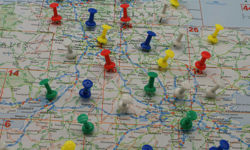
Starting my career in local news a decade ago felt a bit like turning up to the greatest house party ever but a few hours too late. I was filled with enthusiasm to get started but it felt like the best moments happened before I’d arrived and everyone was ready to call it a night.
The picture now is very different. After a rocky decade of print decline, publishers have embraced the opportunities digital presents and now with record-breaking audience numbers, the party is back on.
As a regional newspaper editor for Newsquest, I spend a great deal of time analysing data. Nearly 1.8m people read my websites in November – figures that far surpass the print circulation heydays of the early 2000s. Newspaper sales remain steadier than many had predicted while digital subscriptions and newsletter subscribers are in growth, two important emerging revenue streams which will help future-proof local news providers.
Across the industry, demand for trusted local news is continuing to soar. An impressive 77 per cent of the population over 15 read local news websites – numbers that were described as “mind-boggling” in an industry review by Enders Analysis.
While digital growth should be celebrated, it is not always enough to guarantee success as evidenced by Reach’s recent difficulties.
Newsquest has taken a diverse approach to its digital transformation, ensuring not all its eggs were placed in one basket. Last year, its revenues grew by 3 per cent to £190m and its audience by 12 per cent to 50m monthly readers across 200 titles.
With big audiences come big opportunities for publishers and advertisers in 2024. But the challenge is to convince the government and big business to utilise local platforms effectively.
The same Enders Analysis report found the government, one of the biggest advertisers in the UK, is overlooking the local press, spending six times the amount with big tech as it does with our industry. Newsworks estimates that brands missed out on £2.7b of potential profit in 2021 by missing opportunities to advertise with news brands.
All local media groups face the shared threat of the BBC’s expansion into online local news. With the government reviewing the licence fee, regional publishers may consider joining forces to influence its future. The Beeb’s Local Democracy Reporting Service has been a success; could an expansion into covering courts be another useful allocation of licence-fee payers’ money?
Generative tools like ChatGPT or bespoke in-house versions hold huge potential for newsrooms to free up reporters and improve workflow processes. With any new tool comes risk. Adopting a sensible and measured approach will be key. The Sports Illustrated incident, where AI-generated stories presented with fictitious reporters were published, serves as a cautionary tale. Public perception of our industry remains sensitive in a post-Leveson world, and with 72 per cent of the public preferring to read news written by humans rather than robots, publishers must tread carefully.
This article was first published in the Publishing Partners Guide (PPG) 2024, which is published and distributed by InPublishing. You can register to receive InPublishing magazine here.












